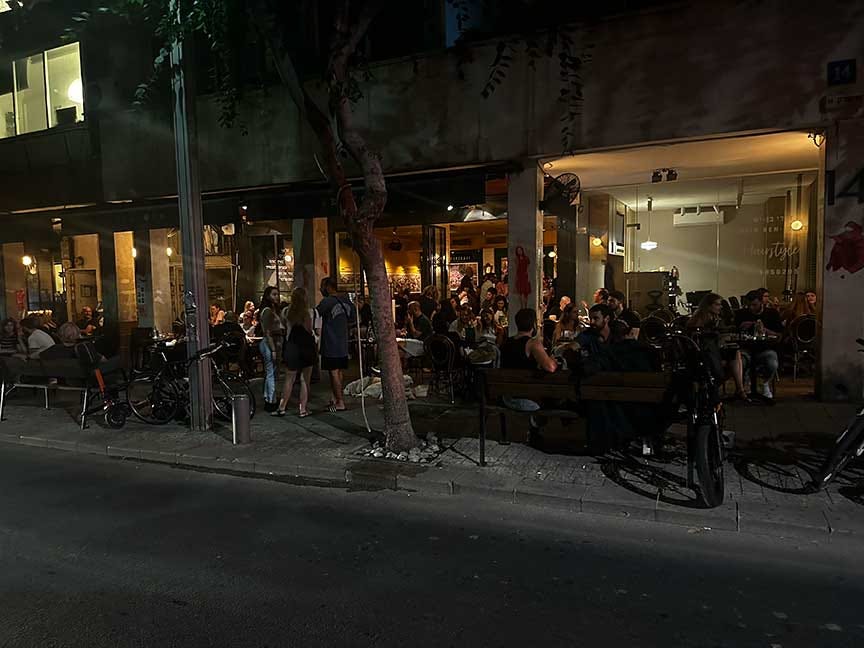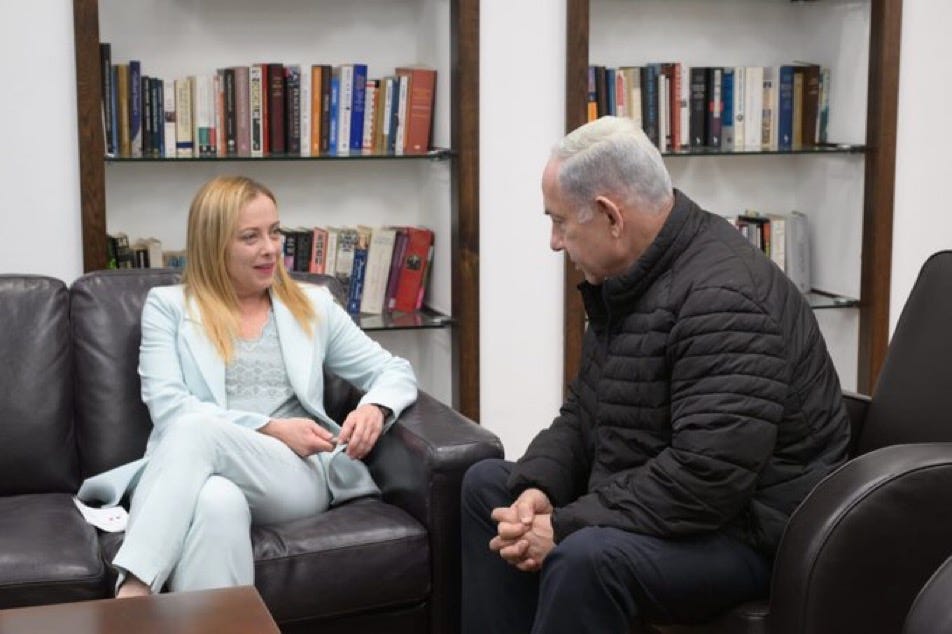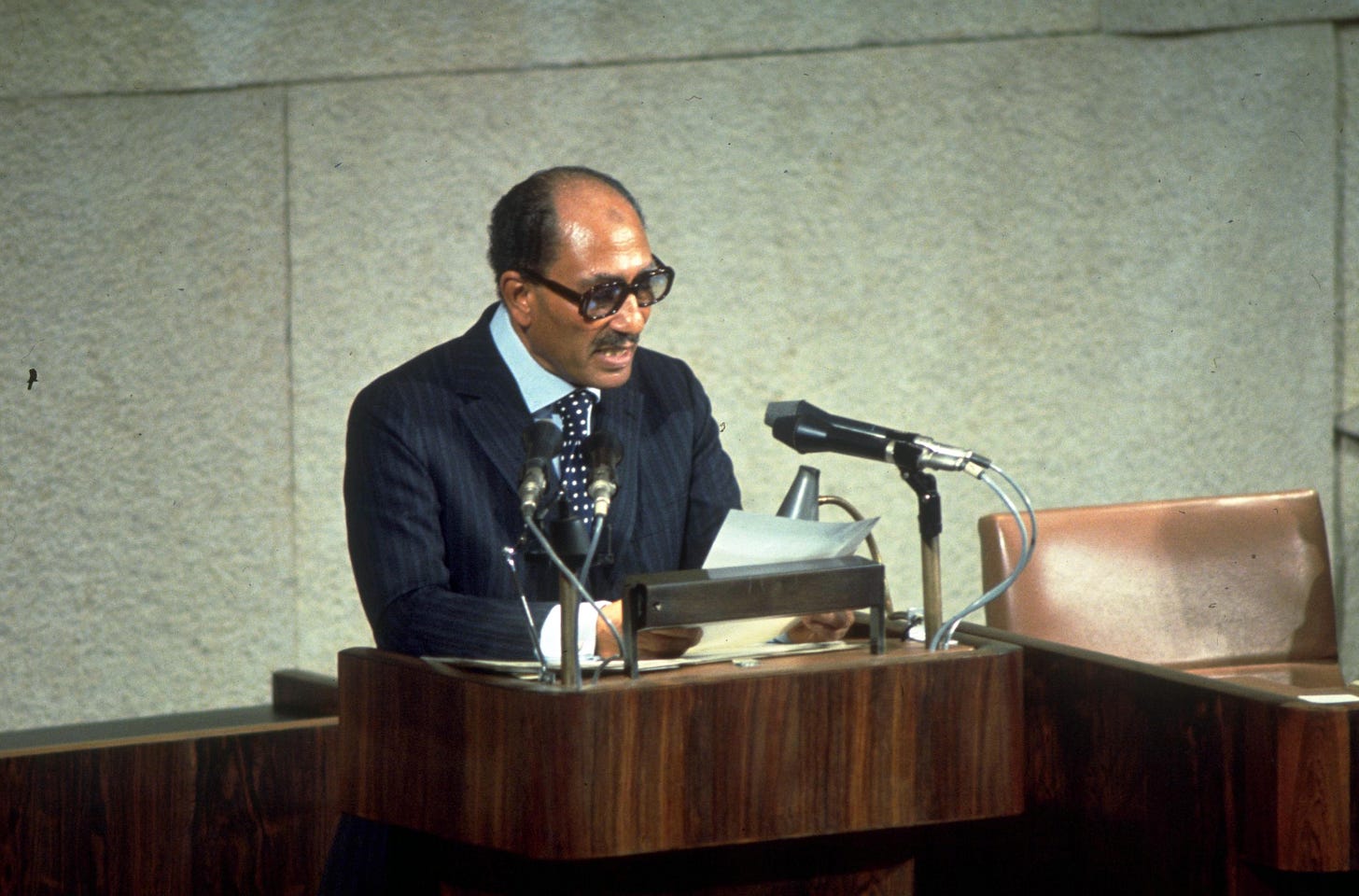DAY 16 OF THE GAZA WAR: Israel Holds Off Ground Assault, War's Economic Challenges
Tel Aviv Diary October 22, 2023
Today was a day of both waiting and fighting. Frankly, I had expected the ground assault would begin today. The army claims it is ready to enter Gaza, but is waiting for the green light from the government. The actual reason for the delay is not clear. CNN reported that the US has asked Israel to delay the ground assault to see if an agreement could be reached to release more hostages on humanitarian grounds. Israeli officials deny any American pressure to hold back the troops.
Whether the delay is the result of American pressure, or a realization that once the ground assault begins, the only way to save the hostages will be with a military rescue, for the meantime, we have decided to wait. It appears Hamas's release of two hostages on Friday succeeded in delaying the ground assault by creating hope they might release additional captives.
This situation cannot continue indefinitely. Israel cannot maintain 360,000 reservists in the field for an extended period. However, with each passing day, the Air Force destroys more Hamas targets, making it easier for ground troops to enter.
Biden and Netanyahu spoke again tonight. This is the seventh time the two leaders have communicated since the war began. This is the White House readout of the call:
President Joseph R. Biden, Jr. spoke today with Prime Minister Benjamin Netanyahu of Israel to discuss developments in Gaza and in the surrounding region.
The President welcomed the first two convoys of humanitarian assistance since Hamas’s October 7 terrorist attack, which crossed the border into Gaza and is being distributed to Palestinians in need. The leaders affirmed that there will now be continued flow of this critical assistance into Gaza. The President expressed appreciation for Israel’s support in helping to accommodate the release of two American hostages. The leaders discussed ongoing efforts to secure the release of all the remaining hostages taken by Hamas – including U.S. citizens – and to provide for safe passage for U.S. citizens and other civilians in Gaza who wish to depart.
The President and the Prime Minister agreed to stay in close touch.
Rocket fire was limited today. As of 9:30 PM, no rockets targeted Tel Aviv. With fewer rockets launched at Tel Aviv, nightlife has resumed, albeit on a more limited basis.
Today, there was one round of missiles aimed at Bet Shemesh and another at Rishon LeTzion. All were intercepted. However, the situation in Netivot, located only a few miles from Gaza, was considerably more challenging. Hamas fired 20 rockets simultaneously at the town; four breached the Iron Dome and landed in populated areas. One individual was seriously injured when he attempted to run from his car to take cover, but did not make it to a safe space in time. The man was seriously wounded, after shrapnel hit him in his legs.
A severe incident occurred when a small Israeli force entered the area immediately beyond the Gaza fence to prepare for the ground assault and to search for the bodies of missing Israelis. A Hamas force from Khan Yunis spotted the group and attacked with anti-tank missiles. One missile hit the D9 (armored bulldozer) killing the driver. The Merkava tanks were unharmed.
Today, 17 trucks carrying humanitarian aid entered Gaza from Egypt. Both Egyptian and American officials inspected each truck.
In the North, there were several missile attacks and attempted attacks. Israel effectively neutralized several attackers before they could strike. Israel retaliated with strikes on Hezbollah positions. Prime Minister Netanyahu was on the Northern border, where he informed the soldiers that their role was currently defensive.
Over Shabbat, the Prime Minister of Italy visited Israel. French President Macron is scheduled to visit here on Tuesday, followed by the Prime Minister of the Netherlands on Wednesday
.
Currently, 200,000 Israelis have been displaced from their homes. Of that number, 120,000 are staying in 234 government-funded hotels. These hotels are now full, leaving no room for additional internal refugees.
Reports suggest that Israel attacked both the Damascus and Homs airports last night, rendering them inoperative. The goal was to intercept the transfer of arms from Iran to Hezbollah.
In an unusual move, the Air Force targeted an area beneath a mosque in the West Bank town of Jenin. According to the Army, the cell they attacked and killed had planned an imminent assault on an Israeli settlement.
The Gaza war is starting to significantly impact the economy. Stores have reported a 75% decrease in sales. In response, major retail chains, including “Fox” and “Mashbir”, have announced plans to lay off between 30-50% of their workforce. Other retailers are expected to follow suit. The restaurant sector is similarly affected, with a substantial drop in income.
The total financial burden of the war remains uncertain, but it's expected to be substantial. While additional US aid might offset some of the costs, a complete budget overhaul will be necessary. This will be the case, especially if the war continues for the anticipated three months. We're already into the third week, and the ground war has yet to commence.
One of my subscribers took issue with my statement expressing general admiration for Thomas Friedman, despite my disagreements with him. After some discussion, the subscriber decided that, as much as she appreciates my writing, she couldn't reconcile receiving content from someone who admires Friedman. Thus, she chose to unsubscribe. I attempted to argue that solely engaging with those whom we entirely agree is problematic. However, she remained firm in her decision to unsubscribe. It's unfortunate, as this mindset highlights a broader issue in both American and Israeli politics: the reluctance to listen to differing opinions.
•••∞•••
Many have recently approached me requesting a concise overview of the Arab-Israeli conflict. The following is my initial draft. While it doesn't encompass every crucial event — and still might be a bit lengthy, it aims to provide a foundational understanding.
A BRIEF OVERVIEW OF THE ARAB-ISRAELI CONFLICT
Jews have resided in Israel/Palestine since ancient times. Although the Romans exiled a significant portion of the Jewish population, a number of Jews remained. Modern Zionism emerged in the late 19th century, rooted in the belief that Jews needed their own nation to ensure their safety.
By 1947, Palestine was home to 600,000 Jews and 1.2 million non-Jews. The British who had been given the Palestine mandate, approached the United Nations (UN) to relinquish this responsibility. In response, the UN formed a commission that engaged with Jews, Arabs, and others to devise a solution. The resultant plan proposed partitioning Palestine into separate Jewish and Arab states. The proposed Jewish state comprised areas that were predominantly Jewish, with the largely uninhabited Negev also included. Jerusalem was designated an international city.
On November 29, 1947, the UN approved this plan. While Jews of Palestine accepted the UN Partition Plan, the Arabs did not, leading to a civil war.
On May 14, 1948, as the British mandate concluded, Israel declared its independence. The next day, nations including Egypt, Jordan, Iraq, Syria, and Lebanon invaded the Jewish State. Israel was victorious. After the war, Israel’s borders extended beyond the partition's proposed boundaries.
During this conflict, approximately 600,000 Palestinians left their homes for various reasons — some by personal choice, others because of instructions from their leaders, and others due to forced evacuation by the Israeli military. After the war, the UN established a unique refugee commission, diverging from standard protocols by not facilitating refugee resettlement in other countries.
In June 1967, Israel faced threats from Egypt, leading to a preemptive Israeli strike. Despite Israel's plea for Jordan's neutrality, the ensuing Six Day War saw Israel gain control of Jerusalem's Old City and the West Bank. Immediately after the war, Israel stated it was willing to give back all the territories — with the exception of Jerusalem — in return for peace. In September 1967, the Arab summit ended with a resolution that stated NO peace with Israel, NO negotiations with Israel, NO recognition of Israel.
Over time, as peace prospects dimmed, Israel began establishing settlements in the West Bank and Gaza.
In 1977, Sadat came to Jerusalem and changed the psychology of the conflict. This led to a peace agreement signed between Israel and Egypt, under which Israel withdrew from all of Sinai desert captured in 1967
.
In 1993, an accord between Israel and the Palestinian Liberation Organization (PLO) facilitated Israel's partial withdrawal from the Gaza Strip and the West Bank town of Jericho, with further negotiations planned. The PLO recognized Israel, and reciprocally, Israel acknowledged the PLO as the Palestinian representative.
In November 1995, Prime Minister Rabin was assassinated.
In 2000, a summit at Camp David, attended by Prime Minister Barak and PLO’s Yassar Arafat, mediated by President Clinton, where Prime Minister Barak presented his proposal of a comprehensive peace plan. However, Arafat declined both this and an even more extensive subsequent offer proposed by President Clinton These refusals led to the second Intifada, during which over 1,000 Israelis perished in bus bombings and other suicide attacks.
In 2005, under the leadership of Ariel Sharon, Israel unilaterally withdrew from the Gaza Strip and dismantled its settlements there.
In 2006, Hamas participated in the Palestinian legislative elections and secured a surprising majority. In 2007, Hamas seized power in the Gaza Strip. Since that time, Gaza has been under Hamas control, while the West Bank remains governed by the Palestinian Authority, which is led by Fatah.
When Hamas took control of Gaza, representatives of the Quartet (UN, US, Russia, and EU) met with its leadership. They stipulated that in order to receive international aid, Hamas would need to:
Recognize the State of Israel.
Renounce violence.
Accept previously signed agreements between Palestinians and Israelis.
Hamas refused these conditions, leading to its international isolation. Consequently, Israel imposed a blockade on Gaza. This initiated a series of intermittent rocket attacks on Israel over the course of the last decade, leading to four brief wars.
On October 7, 2023, Hamas launched a savage attack on the villages along the Gaza Border brutally killing over 1,400 people and taking 212 people as hostages (among them infants and senior citizens).







Good summary - but I think you should have included a reference to the Olmert Plan, which was the last definitive peace offer to the Palestinians, which Abbas simply refused to consider, despite Olmert begging him.
The Olmert plan was undeniably fair and creative and would have left the West Bank with 99.5% of the pre six-day war area, with various border adjustments to include some of the settlements, while the rest would have been removed.
Marc, many if not most Do not think of Thomas Friedman as sympathetic to Israel. I am not surprised that your readers do not agree with your opinion.
Also, please explain why half of academia believe that Israel is a colonizer. I do not understand the reasoning.
Do enjoy your reports, especially when you elaborate on pertinent topics.
Loretta Schulmand